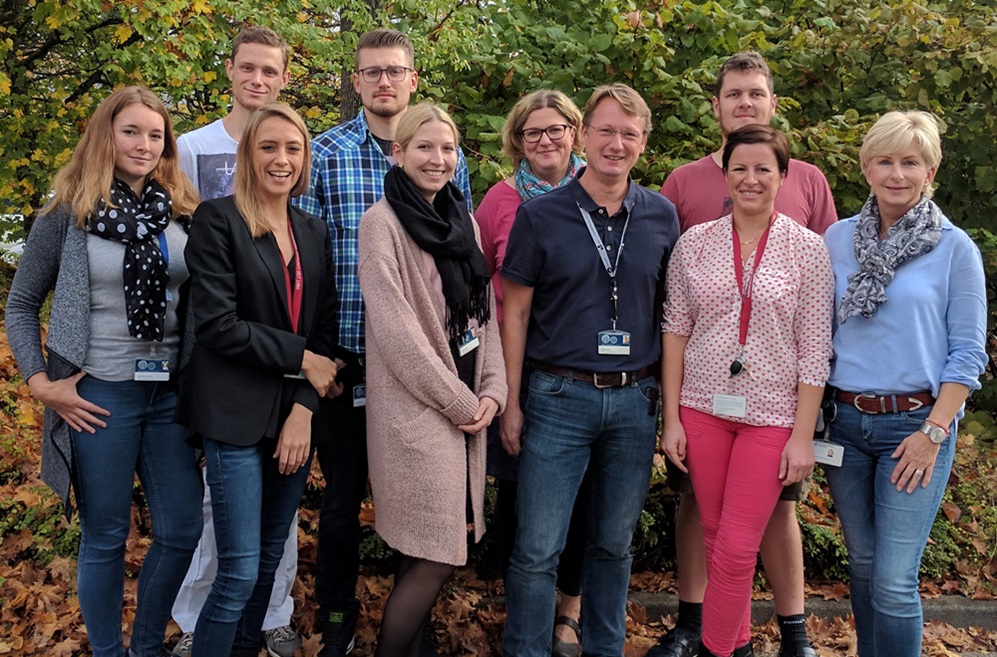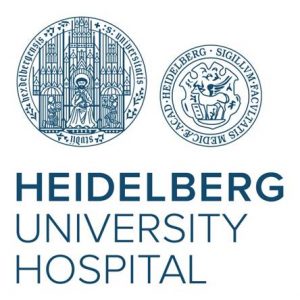Complex Formation and Pathological Mechanisms in the Initial Steps of the N-Glycosylation Pathway
Congenital Disorders of Glycosylation (CDG) actually comprise more than 100 different inherited disorders in glycoconjugate biosynthesis in man. Over the last few years we have identified a large number of patients suffering from a variety of early glycosylation deficiencies. Among these defects especially those occurring in mannosyltransferases localized at the cytosolic side of the ER lead to extremely severe clinical phenotypes. Although comprehensive biochemical analysis has demonstrated the dysfunction of the mutated protein responsible, more in-depth studies on regulatory mechanisms under N-glycosylation deficient conditions are lacking. Our project aims to investigate the pathophysiologic correlation between the ALG1, ALG2 and ALG11 mannosyltransferases in the early steps of the N-glycosylation pathway and the impact of their reduced functionality on other glycosylation pathways by investigating cellular and animal models with a focus on the bifunctional ALG2 mannosyltransferase.
In particular we are interested to find out whether the sequential addition of mannose residues from GDP-Mannose onto a dolichol-bound acceptor oligosaccharide by ALG1, ALG2 and ALG11 is carried out while they are structurally associated with each other. Besides, we will determine how malfunctions of these mannosyltransferases change the composition of the three types of N-glycans (complex, hybrid and mannose-rich) and potentially influence O- and C-mannosylation as well as O-fucosylation. An additional aim of our work will be to perform studies to show whether shortened ALG2 transcripts account for α1,6 mannosyltransferase activity. In a Medaka model for ALG2-CDG we want to study Alg2-dependent processes as these are crucial for embryonic development. In addition to comprehensive analyses of the Alg2-Medakas to detect biochemical irregularities and organ abnormalities, we are also interested in detecting changes in the N-glycan composition and glycosylation site usage of Alg2-deficient embryos in comparison to wildtype animals.
Team
 Christian Thiel (Pi) is a biochemist and group leader of the section for `Glycosylation deficiencies´ at the `Center for Child and Adolescent Medicine´ at the University of Heidelberg. He is working in the field of CDG since 1999 and is interested in pathophysiological aspects of glycosylation deficiencies.
Christian Thiel (Pi) is a biochemist and group leader of the section for `Glycosylation deficiencies´ at the `Center for Child and Adolescent Medicine´ at the University of Heidelberg. He is working in the field of CDG since 1999 and is interested in pathophysiological aspects of glycosylation deficiencies.
Andreas Hüllen (M.Sc., PhD student) specialized in biomedicine and is working on the correlation of the ALG1, ALG2 and ALG11 mannosyltransferases.
Lars Beedgen (M.Sc., PhD student) specialized in biomedicine as well and is working on the hypomorphic Medaka model for ALG2-CDG.
For more information on Christian Thiel’s lab go to his website.
Collaboration
Protein identification and quantification (MRM) by mass spectrometry will be performed by the group of Thomas Ruppert (P5). ALG1, ALG2 and ALG11 protein purifications will be conducted together with the group of Irmi Sinning (P7). Profound N-glycan analysis of human fibroblasts and Medaka cells will be performed by the group of Erdmann Rapp (P4). The group of Britta Brügger (P2) will perform comparative analyses of total and subcellular membrane lipid compositions by high resolution mass spectrometry of human and fish cells. Studies on C-mannosylation and O-mannosylation in patient and fish material will be run together with the groups of Hans Bakker (P1) and Sabine Strahl (P8). The hypomorphic Medaka model for ALG2-CDG will be characterized together with the group of Jochen Wittbrodt (P10).
